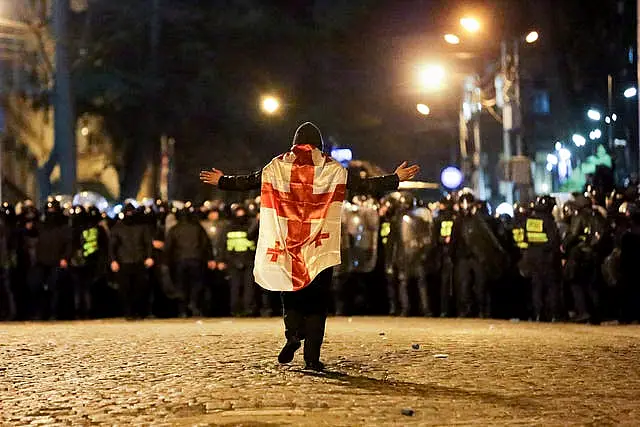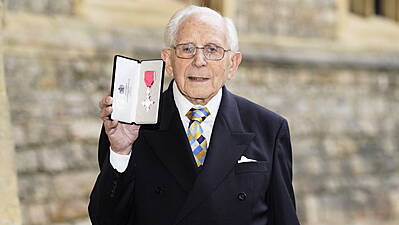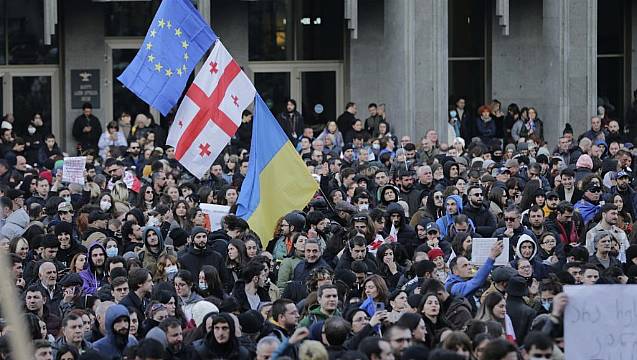Police in the capital of Georgia have used water cannon and tear gas to disperse demonstrators around the parliament building protesting against a draft law that they say could stifle media freedom and civil society.
Lawmakers on Tuesday approved the first reading of the proposed law, which would require media and non-governmental organisations which receive over 20% of their funding from foreign sources to register as “agents of foreign influence”.
More than 60 protesters were arrested outside parliament in Tbilisi after the approval.
The measure is similar to one enacted in Russia in 2012 that has been used to shut down or discredit organisations critical of the government.

Opponents see it as potentially obstructing Georgia’s stated intention of joining Nato and the European Union one day.
The draft law “goes directly against the Georgian authorities’ declared ambition to receive candidate status for EU membership”, said a statement from European Parliament members Maria Kaljurand and Sven Mikser, who are top figures in relations with Georgia.
“The new law’s purpose, under the guise of promoting transparency, is to stigmatise the work of civil society organizations and media,” the statement added.
Protest leaders on Wednesday called for demonstrators to prevent parliament members from returning to the building until the measure is withdrawn.
It was to be discussed on Thursday but local media reported that the debate has been suspended.

Parliament speaker Shalva Papuashvili on Wednesday asked for the measure to be assessed by the Vienna Commission on constitutional law of the Council of Europe, the continent’s leading human rights body.
While Georgia’s president, Salome Zurabishvili, has said she would veto the bill, its authors say it is needed for the transparency of the work of entities financed by representatives of foreign states.
Parliament can override presidential vetoes.







